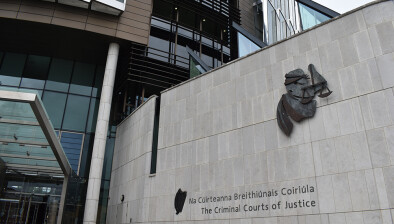Court of Appeal: No requirement for Revenue to re-visit penalties imposed by High Court

The Court of Appeal has confirmed that no requirement for Revenue to reassess penalties imposed by the High Court arises by virtue of s.1077B of the Taxes Consolidation Act 1997 or otherwise.

About this case:
- Citation:[2024] IECA 236
- Judgment:
- Court:Court of Appeal
- Judge:Mr Justice Senan Allen
Delivering judgment for the Court of Appeal, Mr Justice Senan Allen stated: “Leaving aside the fact that Mr Lohan never asked the Revenue Commissioners to do so, there is no basis in the legislation — however construed — for the proposition that the Revenue officer or the Collector General was entitled, never mind required, to re-open 10-year-old VAT assessments or to revisit questions which had been heard and finally determined by the courts.”
Background
In October 2017, the High Court ordered that the appellant, a solicitor, was liable to a penalty of €144,788.50 in connection with his furnishing of incorrect VAT returns for periods between 2003 to 2010.
The appellant failed in his 2019 appeal of this order wherein he challenged the sufficiency of the evidence tendered by Revenue in respect of his liability.
Summary proceedings were issued in May 2022 by the respondent claiming judgment in the sum of €144,788.50 with interest and costs. The appellant entered an appearance in July 2022 and a motion for summary judgment issued in September 2022, being listed for hearing on 6 October 2023. Solicitors came on record for the appellant in November 2022.
When the motion was called on for hearing, counsel for the appellant applied for an adjournment on the basis that he had only just been briefed. This application was refused and the case was put back for an hour.
In October 2023, summary judgment in the sum of €144,788.50 was granted as against the appellant pursuant to ss. 27 and 27A and s.116 of the Value Added Tax Consolidation Act 2010, together with interest and costs.
The appellant appealed, contending that the Revenue Commissioners had a duty to reconsider and/or to reassess the penalties previously imposed by the High Court as s.1077B of the Taxes Consolidation Act 1997, which requires a Revenue officer to form an opinion as to liability to a penalty and to serve notice of same, also applies where a Revenue officer seeks to collect and recover a penalty on foot of a finding of liability by the High Court.
The appellant further contended inter alia that the issue which was before the High Court in 2017 was whether the court should affirm or reject the opinion of the Revenue officer, and further that s.1077C of the 1997 Act was permissive and that the decision to impose, collect and/or to recover a remains with “an officer”.
Court of Appeal
Mr Justice Allen set out the provisions of s.1077B, noting that the scheme of the legislation is straightforward and considered that the appellant’s proposition “need only be stated to be seen to be unsustainable”.
The judge explained that the opinion of the Revenue officer is the first step in a statutory procedure which leads to a determination by the court, highlighting that “Once the determination has been made, there is no scope for an opinion by the Revenue officer who initiated the s. 1077B application — one way or the other. Theoretically, at least, the opinion of the Revenue officer that a person was liable to a penalty might not have been altered by a contrary determination by the court but there could be no question of the Revenue officer bringing a second court application.”
In response to the appellant’s assertion that the section was to be construed literally, Mr Justice Allen opined that “it simply makes no sense to contemplate that the Revenue officer might be entitled, still less required, to revisit a court determination pursuant to s. 1077B that the person is liable to the penalty, a fortiori the court order pursuant to s. 1077C for the recovery of the penalty”.
As to the appellant’s submission that the High Court in 2017 was not supervising or directing the imposition, collection or recovery of a penalty but was making a declaration under s.1077C that the respondent was entitled to recover same, Mr Justice Allen remarked: “Each element of this is based on a misunderstanding of the statutory scheme.”
The judge continued: “In practical terms a decision may need to be made as to the best means by which a penalty may be collected or as to the likely ability of the person to satisfy a judgment but there is no question that anyone — least of all the Revenue officer who brought the s. 1077B application — might be required, or even entitled, to revisit the question of liability to the penalty.”
The Court of Appeal proceeded to consider a further argument on part of the appellant to the effect that before the proceedings issued, the respondent should have revisited the requirements of s.1077B(1) in light of ss.116 and 113 of the Value Added Tax Consolidation Act 2010, which he asserted to import a “reasonable excuse test”.
In this regard, the court explained that “the improbable tale” on which that submission was founded arose from evidence given in a replying affidavit filed by the appellant in January 2023, which suggested that medical issues on part of his accountant and so the differential between his income tax filings and VAT returns could be explained.
Mr Justice Allen opined: “It was all a bit vague but the inexorable consequence of Mr Lohan having overstated his income would be that he overpaid his income tax in the relevant years; and the inexorable consequence of a pro tanto reduction of his VAT liability would be that he would have paid €144,788.50 on the VAT assessments raised on 3rd July, 2013 which — on the case he would make — were demonstrably wrong but which he had not appealed.”
The court concluded: “Mr Lohan’s wishful thinking that all of this — if made out — might form the basis of a defence to the claim for penalties did not go so far as to extend to the refund of the overpaid income tax and VAT. None of this could have possibly availed Mr Lohan.”
Conclusion
Accordingly, the Court of Appeal dismissed the appeal.
Howley v Lohan [2024] IECA 236









